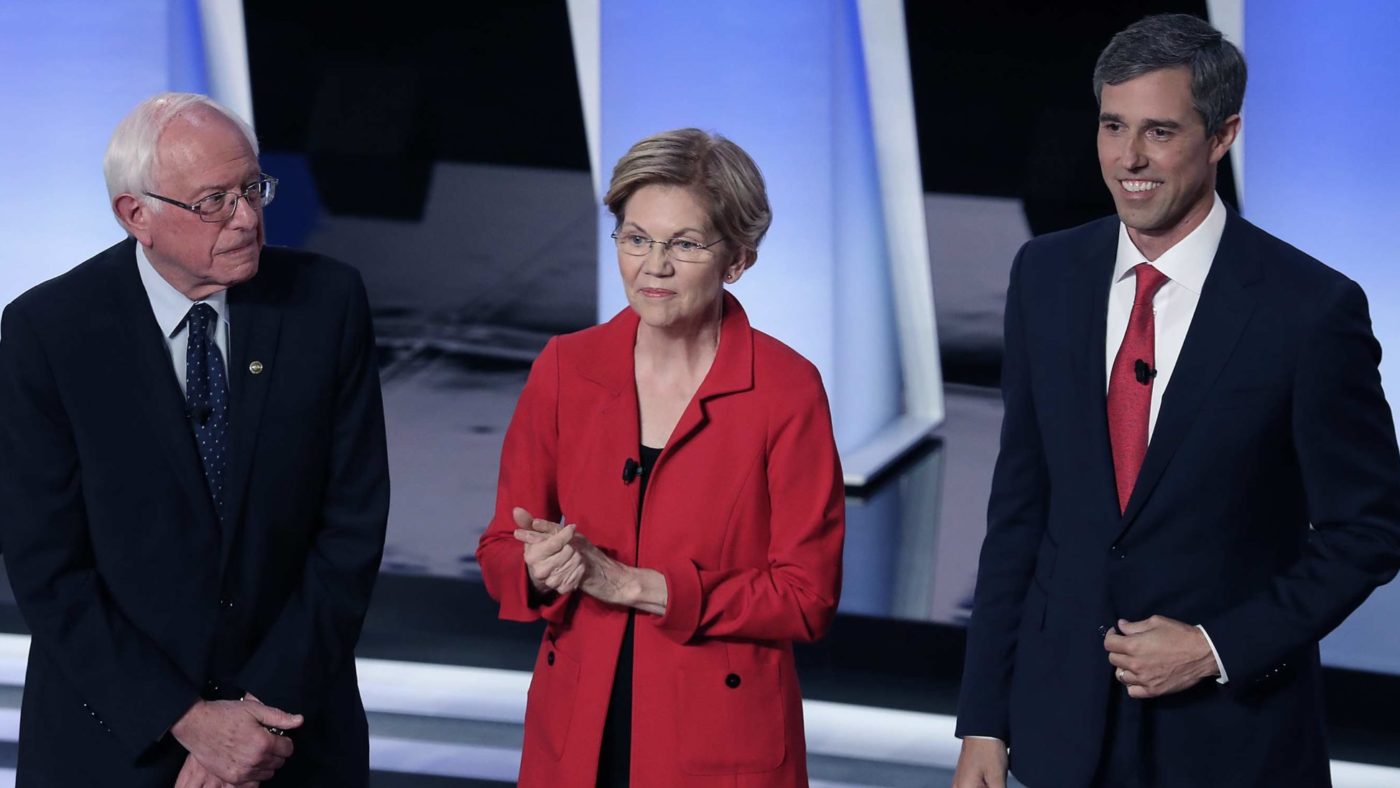The other night, a politician criticized Bernie Sanders and Elizabeth Warren for offering voters “free everything and impossible promises.” Remarkably, the critique came not from a Republican fiscal conservative but from a fellow Democrat during a primary debate. John Delaney, a former congressman from Maryland, said such policies were based on “fairytale economics.”
Fairytale Economics
As economist Thomas Sowell wrote,
The first lesson of economics is scarcity: there is never enough of anything to fully satisfy all those who want it. The first lesson of politics is to disregard the first lesson of economics.
So it was surprising to see a presidential candidate give a nod to the first lesson of economics and lay off the first lesson of politics for a moment.
The word “free” slips freely from the lips of Sanders and Warren: Free health care (“Medicare for All”) and free college are two of their most popular promises. But in a sense, something is only “free” when it is not scarce: when there is so much of it to go around that Group A can use it as much as they want without diminishing Group B’s ability to do the same. Economists call that “superabundance.” In most cases, air is “free.” My intake of oxygen doesn’t meaningfully deprive anyone else of anything.
Health care and education are not “free” in that sense. Pills and pencils, surgeries and lectures are scarce. The same pill can’t be swallowed by two people. And the material and labor that go into producing those things are also scarce. Resources cannot be endlessly lavished on one area without making other uses of those resources impossible. To think otherwise would indeed be “fairytale economics.”
When scarcity is a factor, “how can we afford this?” is a key question, and “we can’t” is a possible answer.
Pretending Scarcity Doesn’t Exist
But to a politician like Elizabeth Warren, such an answer is unacceptable, even baffling. When the debate moderator asked Warren to respond to Delaney’s critique, she said (emphasis added):
I don’t understand why anybody goes to all the trouble of running for president of the United States just to talk about what we really can’t do and shouldn’t fight for. I don’t get it.
She doesn’t get it because she’s following Sowell’s first law of politics. Disregarding scarcity is simply best practice in her profession. Scarcity may limit what you can deliver on, but it doesn’t limit what you can offer. And voters have a poor track record on holding politicians accountable to their promises. So if you’re running to win, it often pays to out-promise your competitors, even if that means veering into fairytale territory. Letting pesky realities like scarcity get in the way of that can be political suicide, as I’m guessing Delaney will find out soon.
Entrepreneurs do a much better job than politicians at alleviating scarcity through efficient, value-creating production.
To be fair, the same individuals who tend to be gullible as voters are typically savvy as customers. When they are let down by a business, they readily take their money elsewhere. That is how they hold entrepreneurs accountable. That is why entrepreneurs are concerned not just with promises but with delivery. And that is why entrepreneurs abide by Sowell’s first law of economics: why they take scarcity seriously.
Because customers hold them accountable, entrepreneurs also do a much better job than politicians at alleviating scarcity through efficient, value-creating production. Entrepreneurial projects do fail, but then they go away when their customers do, clearing the stage for something better. Since government projects are financed by involuntary “customers” (taxpayers), they are ultimately unaccountable and “free” to fail indefinitely.
Entrepreneurship and Innovation Are the Answer
That is why entrepreneurs give us goods and services that are amazing and yet widely affordable (even “free” to the user, when ad-supported), while politicians give us programs that are “free” but perpetually struggling and unsatisfactory.
For example, in the realm of education, think about how much learning happens on YouTube and through podcasts these days—and how much those platforms have grown and progressed as educational resources in just a few years. These sectors are indeed crying out for reform. But count on accountable entrepreneurs, not unaccountable politicians, to deliver.
Compare that to the decades of frustrated attempts to reform public schools.
And in healthcare, contrast the customer service of walk-in health clinics at CVS and Walgreens versus the Veterans Administration.
Keep these track records in mind when politicians promise vast expansions of “free” education and health care. These sectors are indeed crying out for reform. But count on accountable entrepreneurs, not unaccountable politicians, to deliver.
This article was originally published on FEE.org.
CapX depends on the generosity of its readers. If you value what we do, please consider making a donation.


